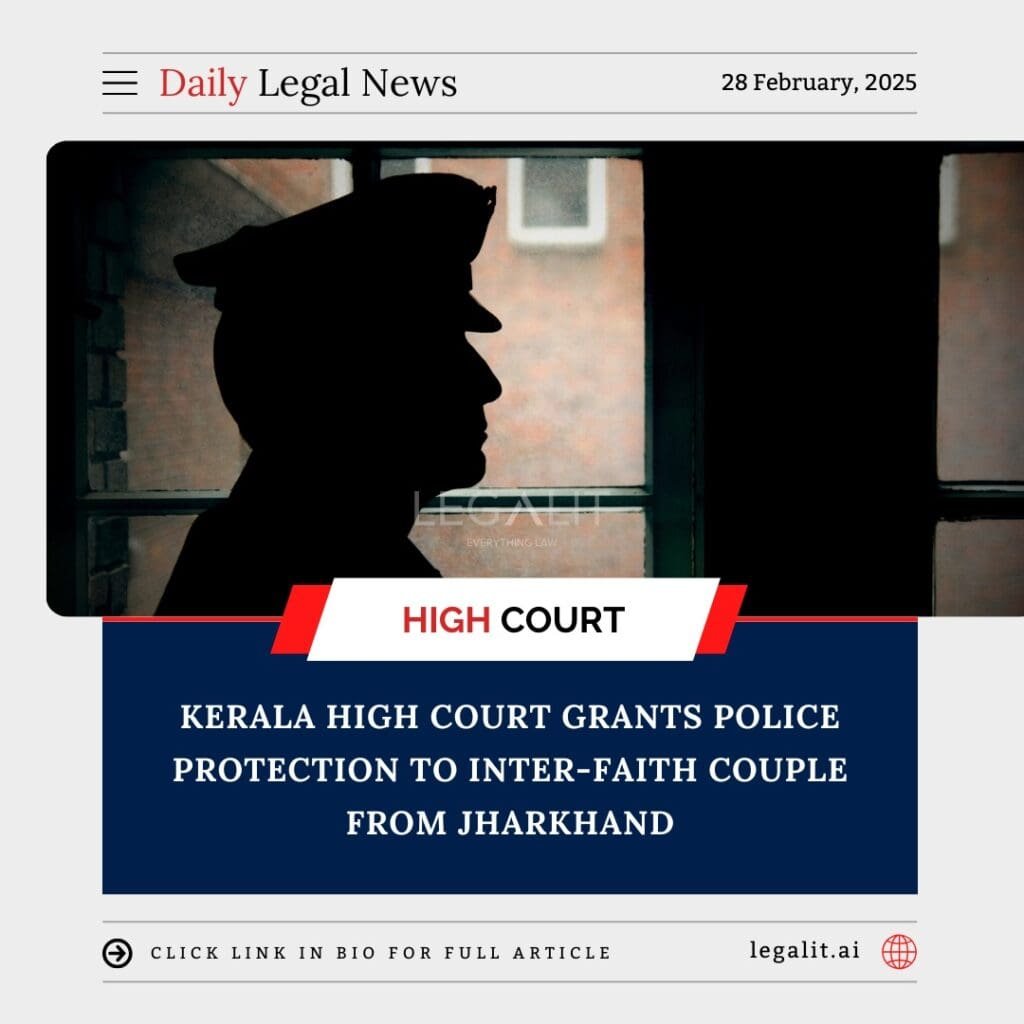
Background
The Kerala High Court has granted police protection to an inter-faith couple from Jharkhand who faced threats from their families and community due to their relationship. The couple, a Hindu woman and a Muslim man, approached the court seeking security after being harassed and allegedly receiving threats to their lives. They contended that their right to choose a life partner was being violated due to social and familial opposition.
The petitioners claimed that they had entered into a consensual relationship and intended to marry under the Special Marriage Act. However, their families objected and allegedly pressured them to separate. Fearing for their safety, they fled to Kerala and sought judicial intervention to ensure protection from coercion and violence.
Court’s Observations
During the hearing, the Kerala High Court reaffirmed the constitutional right of individuals to choose their partners irrespective of religion, caste, or societal norms. The bench made the following key observations:
- Right to Marry is Fundamental
- The court emphasized that the right to marry a person of one’s choice is part of the fundamental right to personal liberty under Article 21 of the Constitution.
- It cited previous Supreme Court rulings, stating that familial or societal disapproval cannot override an individual’s autonomy in marriage.
- State’s Duty to Protect Citizens
- The bench noted that it is the duty of the state to ensure that individuals are not subjected to violence or threats for exercising their fundamental rights.
- It directed the Kerala Police to provide necessary protection to the couple and prevent any form of harassment.
- Intervention Against Honor-Based Threats
- The court strongly condemned honor-based violence, emphasizing that such actions have no place in a democratic society.
- It warned the couple’s families and community members against taking any unlawful steps to interfere in their decision.
Existing Measures
- The Special Marriage Act, 1954, allows inter-faith marriages without religious conversion, provided both parties meet legal criteria.
- The Supreme Court has previously ruled that state authorities must offer protection in cases where couples face threats due to interfaith or inter-caste relationships.
- Law enforcement agencies have been directed in multiple cases to ensure that individuals choosing interfaith marriages are not subjected to coercion or violence.
Conclusion
The Kerala High Court’s order reinforces the constitutional right of individuals to marry freely, irrespective of religious barriers. By granting police protection to the couple, the court has upheld personal liberty and sent a strong message against societal coercion. The ruling underscores the judiciary’s role in safeguarding individual choices against undue interference from families or communities.